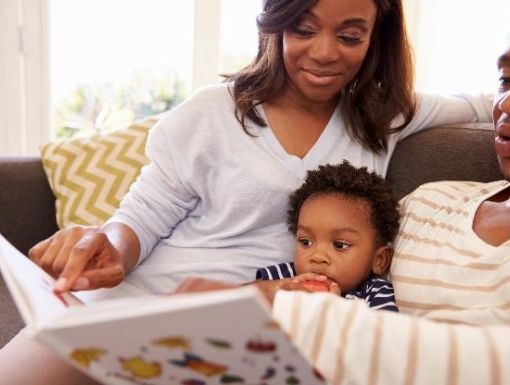
How to Play with Your Child
Play provides opportunities for children to learn about the world, develop self-esteem, problem-solve, explore their imagination, and interact socially. Play is important in early childhood because it contributes to the development of cognitive skills, social-emotional skills, and the ability to regulate behavior. There’s a lot happening during playtime. When you join in your child’s play, your child also learns that she is loved, important and fun to be around. This gives children the self-confidence they need to build loving and supportive relationships as they grow. Parents don’t need to be the best playmate or have the wildest imagination. Parents just need to attend and follow their child’s play. Just have fun!
Tips to Playing with Your Child
Follow their lead. This isn’t the time to ask questions to test your child’s knowledge or skills, simply watch your child and admire their curiosity and follow their lead. Play is the time for the child to be the leader.
Imitate their actions. Copy them and do what they tell you to do. Imitation is the truest form of flattery and makes your child feel important and special.
Go with the flow. At younger ages, especially during toddlerhood, play tends to be repetitive. This can sometimes be boring for the parent and it is tempting to change the play or add another quality to the play. Just go with your child’s flow. Children learn through repetition, and they need to practice activities in order to master it. Repetition is also a way for children to “work-out” activities or scenes they have experienced in their daily life that are either interesting or confusing.
It is the process of play, not the end product, that is important. Avoid correcting or judging your child’s play. Toy cars and stuffed animals may fly, they may pretend to be puppy dogs and pretend to eat food off the floor. Point is, the play doesn’t need to make sense. Focus on the social appropriateness of their behavior and play. Praise their creativity and persistence.
Express interest in your child’s play by describing their actions. Describe what you are observing. This builds language skills and communicates to your child that you are interested in them and that they have control over the play.
Encourage your child’s problem-solving and independence. During toddlerhood, children vacillate between wanting independence and still being dependent on parents. Children will have tantrums at times when they want to do something independently, but still require the help of a parent. During play, try not to give too much help or take over an activity. Instead of doing something for your child, encourage that you do it together. This will build your child’s self-esteem and sense of accomplishment.
Simply, have fun and enjoy your child’s creativity, spontaneity, and curiosity. In addition to free play or imaginary play, there are also games that foster your child’s learning, social skills, and social-emotional development.
Here are some games that support your child’s social skills and play skills:
- Simon Says
- Duck-Duck Goose
- Red Light/ Green Light
- Scavenger Hunt
- I Spy
- Telephone
- Pretending: Doll-Play, Kitchen/house-keeping play
- Rainy Day Obstacle Course
- Arts and Crafts
- Play Ground
Become a kid again, with your child leading the way!
Learn more about child psychology at Ochsner.


